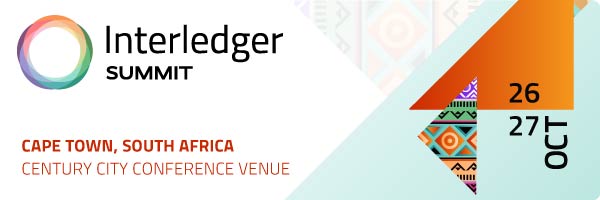
South Africa has set itself apart with a mature financial system and a strong regulatory framework. Despite this, financial inclusion remains a pressing challenge.
While insights show steady growth in the number of individual bank accounts, monthly transactions from these accounts remain low. This lack of engagement with the formal financial services sector is the focus of growing concern from governments, civil society and payment professionals worldwide.
According to a November 2023 policy document on financial inclusion from national treasury, South African adults with transactional bank accounts grew from 67% in 2012 to at least 82% in 2022. However, only 31% of the banked population use their accounts more than three times a month.
“We are used to living in a world where intermediaries facilitate financial services for a fee, resulting in more expensive and often more cumbersome transactions. In a country with lower household incomes, this traditional way of transacting can be exclusionary,” says Briana Marbury, Interledger president and CEO.
“Any country looking to reduce poverty and create a more equitable society must explore new, fairer ways to access financial services. Open payments and open standards offer the means to a more inclusive, efficient and innovative financial ecosystem,” Marbury says.
Open standards – levelling the playing field
Open standards, including those used in peer-to-peer transactions, cross-border payments and digital currencies, are revolutionising how societies transact.
What’s more, the global push towards faster payments, such as BankservAfrica’s Rapid Payments Programme and its Payshap instant payments initiative, also holds enormous potential to help drive merchant acceptance. This is especially the case in fragile communities that depend on the immediate cash flow, typically only provided via cash sales.
The Interledger Foundation, which aims to foster global digital financial inclusion and equitable access, is the steward of the Interledger Protocol (ILP). This is an open-source protocol, based on open standards, that is currency agnostic. It allows anyone to send value anywhere and exchange currencies of all types, and it is designed to make payments faster, easier and cheaper.
“Interledger has created a global payment network of connecting nodes, where value can flow freely across borders and between different currencies. The Interledger Protocol has been designed to facilitate the transfer of digital assets – from fiat currency and crypto to digital assets like points, loyalty rewards and even in-game currencies. Interledger can bridge the gap between proprietary systems, opening the entire financial ecosystem to a new way of transacting,” Marbury explains.
 Interledger has long had strong partners in Cape Town, including Fynbos, a digital wallet for easily sending money; TigerBeetle, a distributed financial accounting database designed for mission-critical safety and performance; and SnakeNation, which is creating a gateway to the global creative economy for local content creators.
Interledger has long had strong partners in Cape Town, including Fynbos, a digital wallet for easily sending money; TigerBeetle, a distributed financial accounting database designed for mission-critical safety and performance; and SnakeNation, which is creating a gateway to the global creative economy for local content creators.
Big opportunity for software development communities
Open payments are rapidly evolving, allowing software developers to shape the future of finance. The demand for developers with experience in this specialty is growing exponentially. Interledger already works with the University of Cape Town to co-design and implement an open payments curriculum and provides real-world opportunities that highlight careers in open technology.
According to senior lecturer Allan Davids, UCT welcomes between 15 and 20 new students from South Africa and other African countries each year. “Our goal is to empower the next generation of entrepreneurs with the necessary skills to build the applications that are going to power the future financial system. The Interledger Foundation helps us provide funding to these students to be able to pursue their dreams, to be able to pursue their education,” he says.
Real-world applications that are changing lives
Marbury says that transaction fees disproportionately affect small payments, making up a far greater percentage of the payment than in larger transactions. However, she says Interledger has the potential to shift this and make smaller payments much more viable.
“Imagine the benefits of seamless small payments and multiple transaction options. This would include traditional bank accounts, cryptocurrencies and mobile wallets – all with lower transaction fees. Real-world applications include remittances, cross-border payments, micropayments and foreign exchange options that allow everyone to pay in their local currency with low conversion fees. The possibilities are limited only by our imagination,” she says.
Global insights and opportunities coming to the Mother City
South Africa presents a compelling springboard for Interledger’s growth and development on the continent. Marbury explains: “By hosting the Interledger Summit in Cape Town, we hope to contribute to a thriving open payments ecosystem. This includes the potential for partnerships with software developers, fintechs and payment providers, government agencies, banks, retailers and more. We recognise the immense potential of Cape Town as a development hub and see the Interledger Summit uniting local and global minds around the open payments movement and the digital financial systems industry’s future. We look forward to seeing what new creative opportunities present to our growing community.”
The Interledger Foundation Summit will take place from 26-27 October at Century City Conference Venue. Key presentations will include:
- An African parliamentary panel and a South African regulation panel;
- Keynotes from Stefan Thomas (chairman and co-creator of the Interledger Protocol);
- Briana Marbury (president and CEO of Interledger Foundation); and
- A discussion on the Bank for International Settlements working paper on the Finternet.
About The Interledger Foundation
The Interledger Foundation was established in 2020 as a US-based global non-profit grant-making foundation. Our aim is to increase access to digital financial services by advocating for the adoption of an open-source currency network, powered by the Interledger Protocol (ILP), working directly with underrepresented groups.
- Read more articles by The Interledger Foundation on TechCentral
- This promoted content was paid for by the party concerned


